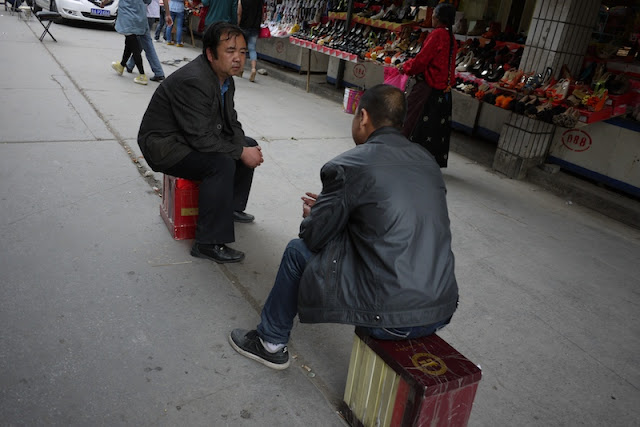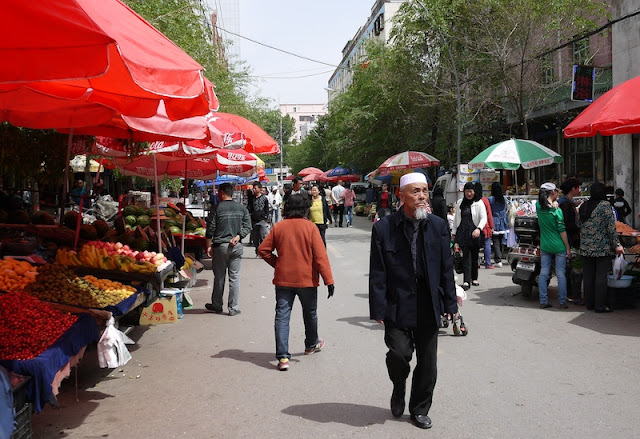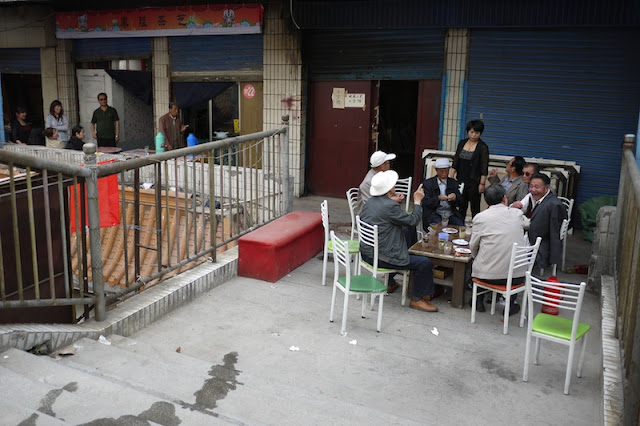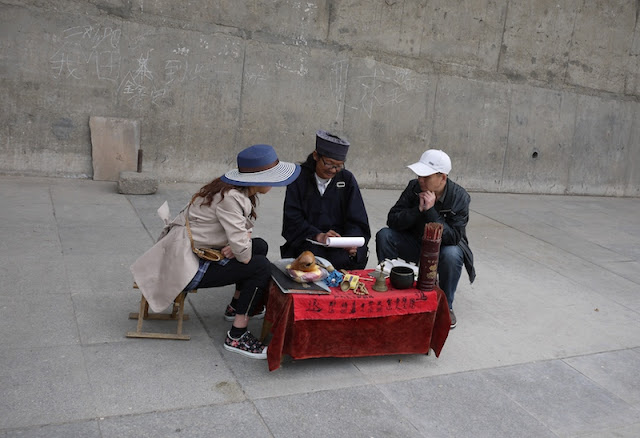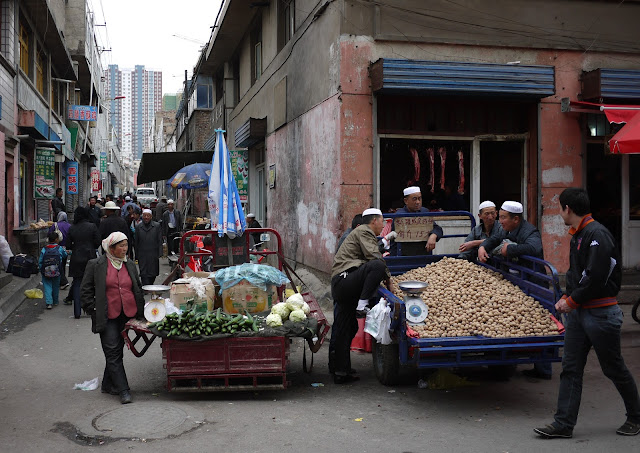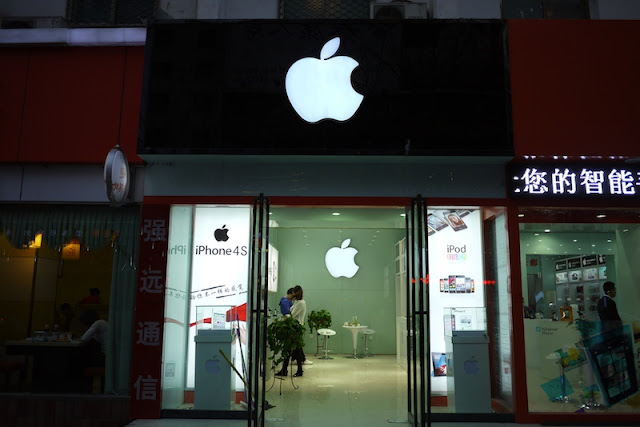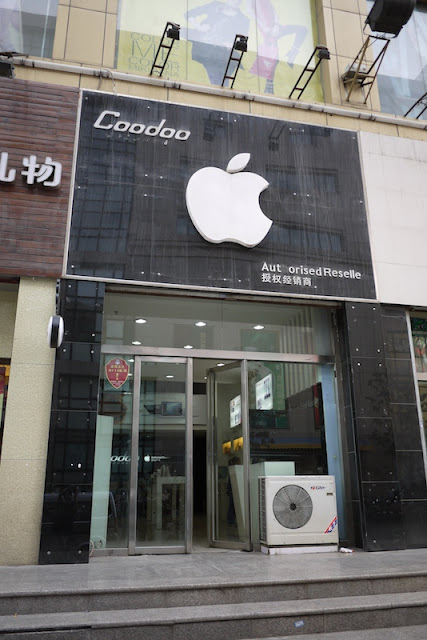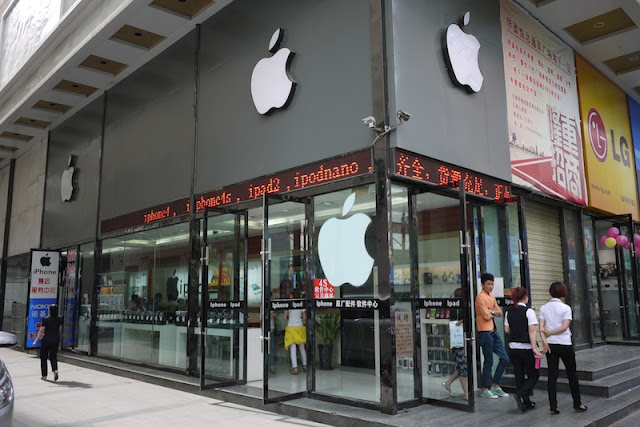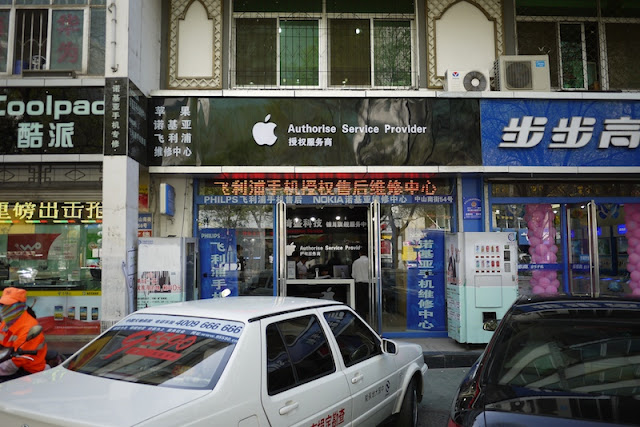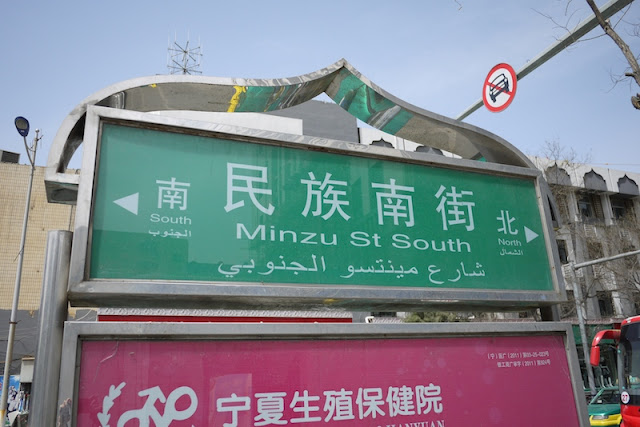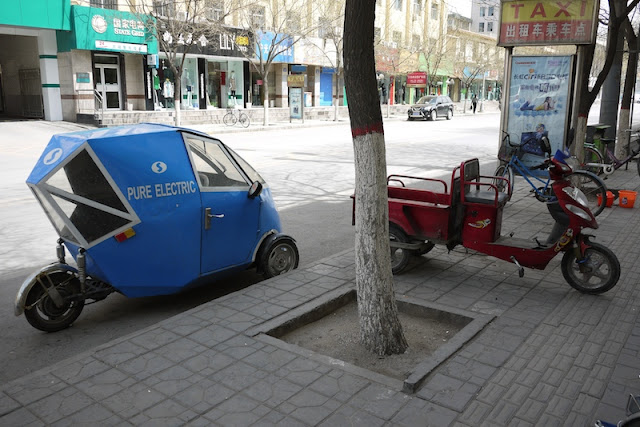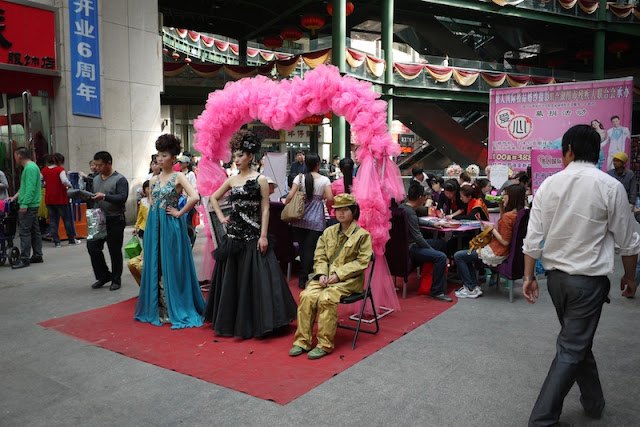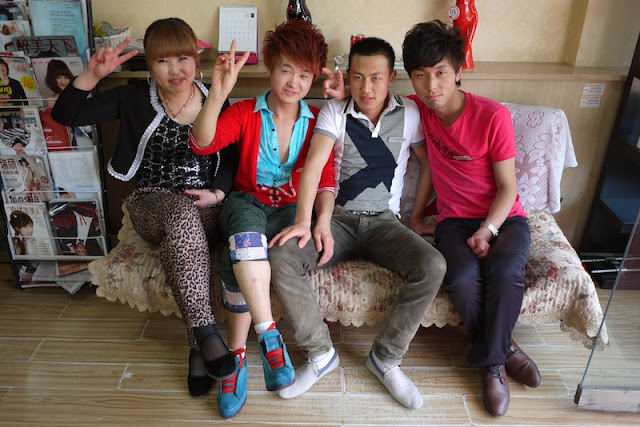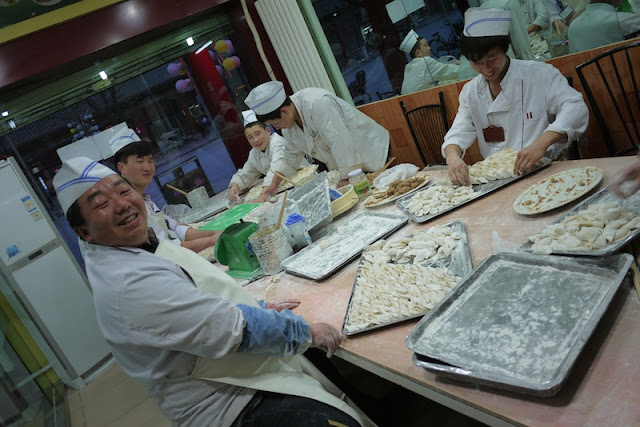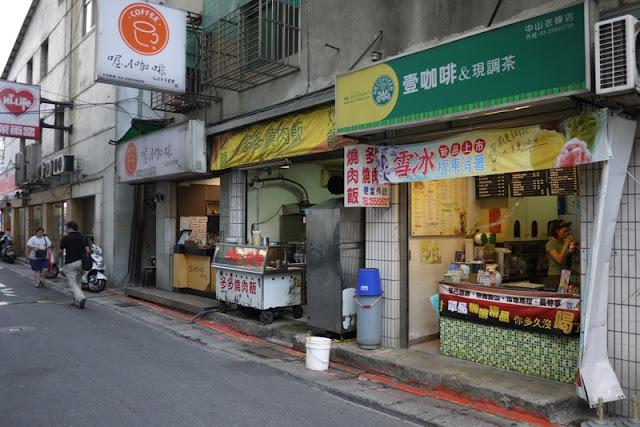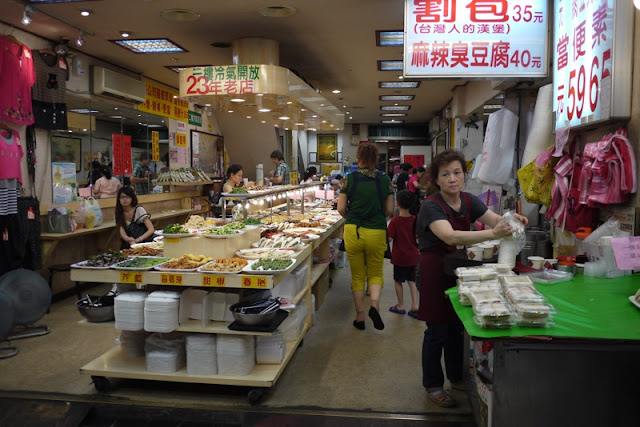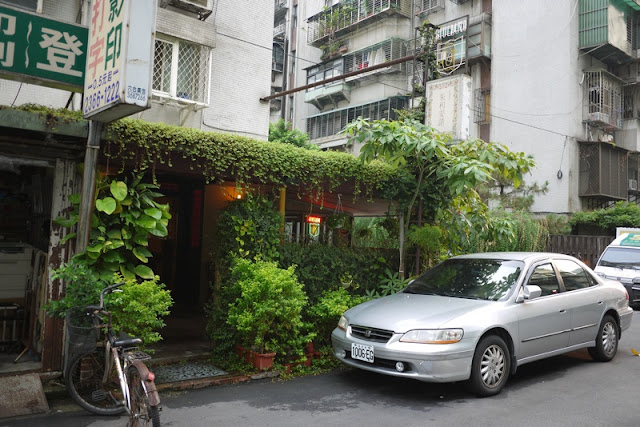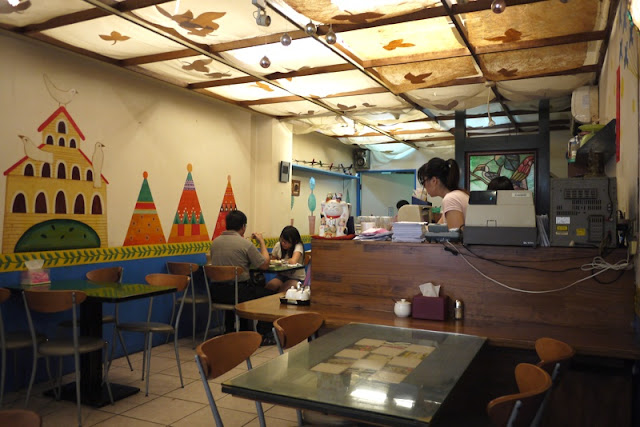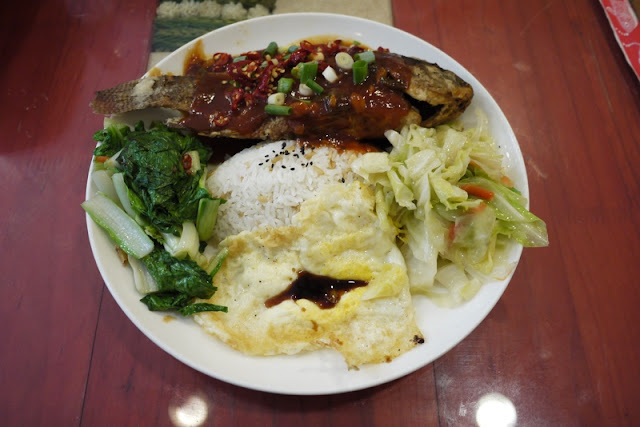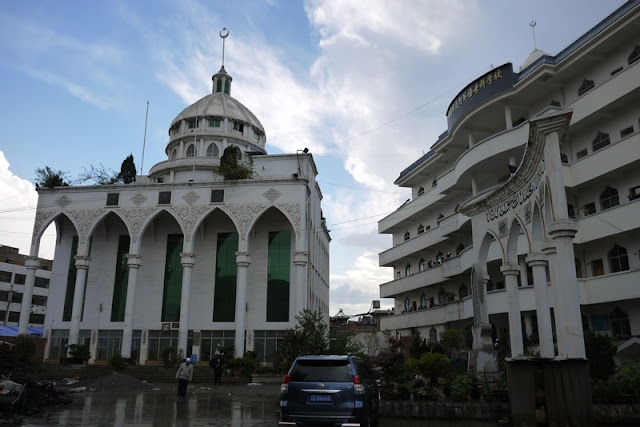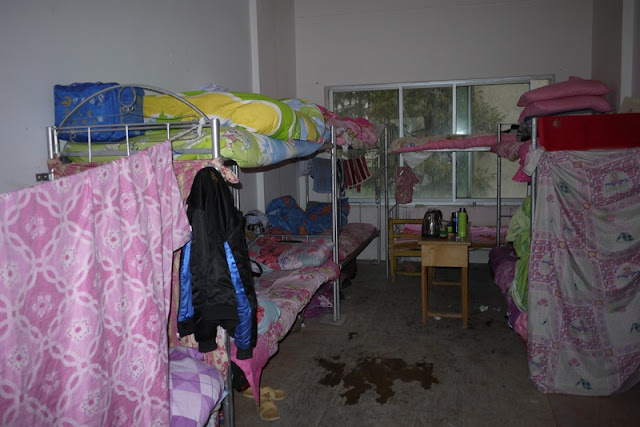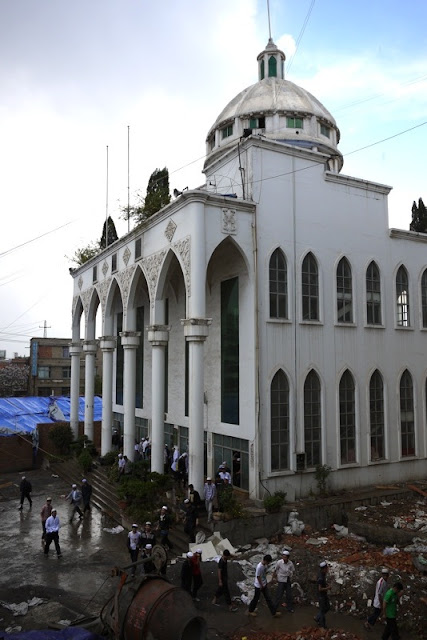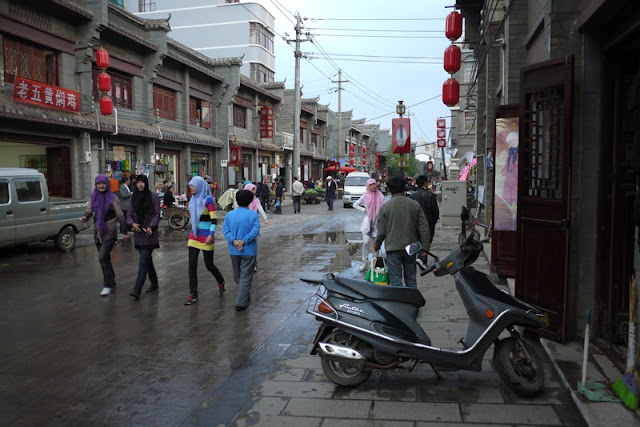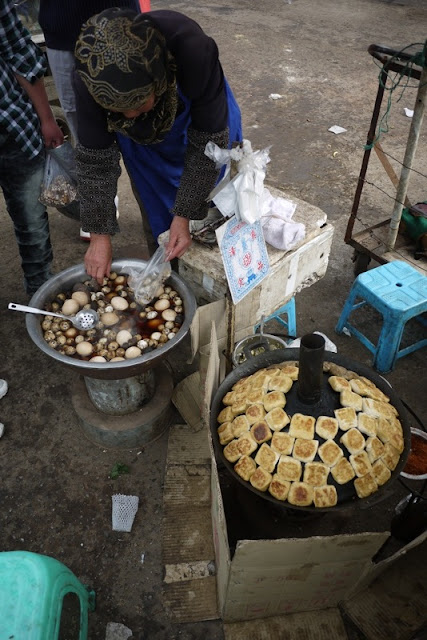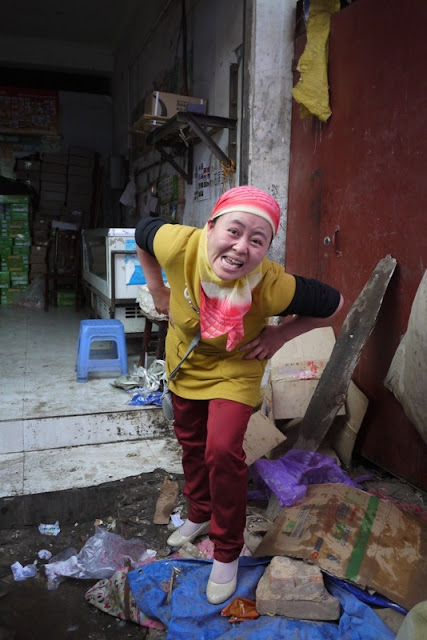Last year I shared scenes of nature around Qinghai Lake, scenes of urban growth in Xining, scenes of daily life in Xining, and scenes of religion at the Tibetan Kumbum Monastery -- all from Qinghai province in northwestern China. It's a region of rich ethnic diversity including Tibetan, Muslim Hui, and Han people.
During my time in Qinghai, I had several conversations with young Tibetans. Sometimes they shared their views about the Chinese government. They were never positive, and in a later post I will say more about what they said and what they wrote. But now I want to recommend the article "Good Lord: In China, Christian Fundamentalists Target Tibetans" in Time by Clarissa Sebag-Montefiore. She reports on Christian Fundamentalists attempts to convert Tibetans in Qinghai:
Again, I recommend reading the full article. It presents a side of China that doesn't receive as much attention as others, but it touches on a variety of important issues, including how some Tibetans feel their identity is being threatened by multiple groups.
During my time in Qinghai, I had several conversations with young Tibetans. Sometimes they shared their views about the Chinese government. They were never positive, and in a later post I will say more about what they said and what they wrote. But now I want to recommend the article "Good Lord: In China, Christian Fundamentalists Target Tibetans" in Time by Clarissa Sebag-Montefiore. She reports on Christian Fundamentalists attempts to convert Tibetans in Qinghai:
Much of the informal English instruction in Xining is run by missionaries as are the majority of the foreign cafés. They translate the Bible into Tibetan, distribute flash drives containing their beliefs and rework Tibetan folk songs with Christian lyrics. Some help run orphanages. Targeting the young is key. When a South Korean missionary asked Tenzin which Tibetans needed help, he suggested the elderly. According to Tenzin, the Korean replied: “Not old people — [we want] children.”Based on my own social networking feeds, it appears the article can stir up a variety of people outside of China, including both those who consider themselves religious and those who do not. In some cases, people seem pulled between between being happy to see more signs of religious freedom in China and being disturbed by the tactics used by the missionaries. For example:
Aggressive tactics persist, however. In a quiet Tibetan town three hours drive from Xining, one local describes seeing a missionary throw coins into the air. “This comes from Jesus,” he declared to the astonished crowd. The same Tibetan remembers with an incredulous laugh being told that Christianity brings cash. “All Buddhist countries are poor,” the missionary said. “If you believe in Jesus, you will be rich.”
As much as I respect freedom of religion, I can't help but draw parallels between the fundamentalists' conversion tactics and corporations' marketing strategies. "Targeting the young is key" <<--- the last time I saw that sentence was in a description of McDonald's strategy to get kids hooked on Big Macs. Just saying.Whatever you think about the tactics, it may seem odd that the Chinese government, which officially considers missionary work to be illegal, has not interfered with the efforts. Sebag-Montefiore shares the thoughts of Robert Barnett, a Tibet scholar at Columbia University, as to why this may be the case:
and " “All Buddhist countries are poor,” the missionary said. “If you believe in Jesus, you will be rich.” " Are they SERIOUS?! Offensiveness aside, have they forgotten their own teachings, like: "Hebrews 13:5 Keep your life free from the love of money, and be content with what you have" ? It sounds to me like they've completely lost sight of Jesus' original intent, and are deploying whatever appalling tactics they can to get people to convert.
Barnett believes the reason for the government’s tolerant attitude is twofold. First, American missionaries, often funded by their churches, provide a valuable service teaching English for scant pay. Second, by targeting Tibetan Buddhism, missionaries might just help the government erode this integral part of Tibetan identity. Keeping a lid on restive Tibet, which China invaded in 1949–50, is paramount. Under Chinese rule, self-immolations by Tibetans protesting religious and political subjugation have become common in recent years. Tibetan-language schools have been closed down, nomads resettled in towns and cities, and monasteries subject to close police surveillance. Images of the exiled Dalai Lama, Tibet’s spiritual leader, are banned.It is yet another example of the sometimes pragmatic approach taken by the Chinese government to achieve its goals.
“There is a certain underlying commonality of purpose between the evangelizers and the new modernizing Chinese state. It’s just convenient for them to use each other,” explains Barnett. “[Today missionaries] have greater opportunities coming in on the coattails of the Communist Party.”
Again, I recommend reading the full article. It presents a side of China that doesn't receive as much attention as others, but it touches on a variety of important issues, including how some Tibetans feel their identity is being threatened by multiple groups.


